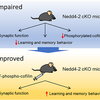Additional Campus Affiliations
Senior Research Scientist, Molecular and Integrative Physiology
Recent Publications
Kumar, V., Lee, K. Y., Acharya, A., Babik, M. S., Christian-Hinman, C. A., Rhodes, J. S., & Tsai, N. P. (2024). mGluR7 allosteric modulator AMN082 corrects protein synthesis and pathological phenotypes in FXS. EMBO Molecular Medicine, 16(3), 506-522. https://doi.org/10.1038/s44321-024-00038-w
Mehta, K., Yentsch, H., Lee, J., Yook, Y., Lee, K. Y., Gao, T. T., Tsai, N. P., & Zhang, K. (2024). Phosphatidylinositol-3-phosphate mediates Arc capsid secretion through the multivesicular body pathway. Proceedings of the National Academy of Sciences of the United States of America, 121(35), Article e2322422121. https://doi.org/10.1073/pnas.2322422121
Yook, Y., Lee, K. Y., Kim, E., Lizarazo, S., Yu, X., & Tsai, N. P. (2024). Hyperfunction of post-synaptic density protein 95 promotes seizure response in early-stage aβ pathology. EMBO Reports, 25(3), 1233-1255. https://doi.org/10.1038/s44319-024-00090-0
Lee, K. Y., Wang, H., Yook, Y., Rhodes, J. S., Christian-Hinman, C. A., & Tsai, N. P. (2023). Tumor suppressor p53 modulates activity-dependent synapse strengthening, autism-like behavior and hippocampus-dependent learning. Molecular Psychiatry, 28(9), 3782-3794. https://doi.org/10.1038/s41380-023-02268-9
Lee, K. Y., Zhu, J., Cutia, C. A., Christian‐Hinman, C. A., Rhodes, J. S., & Tsai, NP. (2021). Infantile spasms‐linked Nedd4‐2 mediates hippocampal plasticity and learning via cofilin signaling. EMBO Reports, 22(10), Article e52645. https://doi.org/10.15252/embr.202152645



